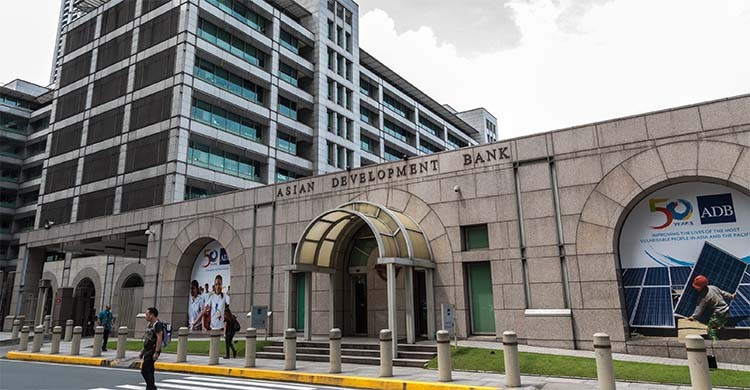ADB approves $230m for flood rehabilitation in Bangladesh
17 April 2023, 06:33 pm | Updated: 05 April 2025, 01:19 pm

The Asian Development Bank (ADB) and the Government of Bangladesh today signed agreements for $230 million loan to help the rehabilitation and reconstruction efforts in north-eastern Bangladesh affected by devastating floods in May-June 2022.
Sharifa Khan, Secretary, Economic Relations Division, and Edimon Ginting, ADB Country Director for Bangladesh, signed the agreements on behalf of Bangladesh and ADB respectively.
The assistance under the Flood Reconstruction Emergency Assistance Project will help in the reconstruction, improvement of resilience, and economic recovery of northeastern districts of Brahmanbaria, Habiganj, Kishoreganj, Moulvibazar, Mymensingh, Netrakona, Sherpur, Sunamganj and Sylhet, said a press release.
Record rainfall in northeastern Bangladesh in May-June 2022 caused massive flooding, especially in the low-lying Haor region, affecting some 7.2 million people.
"The project will address the climate change impacts by developing innovative climate-resilient infrastructure under the build-back-better principles in line with the government's national adaptation plan," said Country Director Edimon Ginting.
"The project will also help improve living conditions, livelihoods, and climate resilience in the flood-affected northeast region of Bangladesh by reducing flood risks in 79,233 hectares of land; improving climate-resilient irrigation infrastructure and water delivery services in at least 10,000 hectares of land; reconstructing and rehabilitating 757 kilometers (KM) of rural roads, 34 km of rail track, 80 km of river embankment and 11,900 tube wells; and planting 100,000 trees," Ginting added.
In partnership with reputable national and international research institutes, the project will support climate-smart agriculture technologies and livelihood support to the flood-affected people in the socioeconomically underdeveloped Haor region.
The improvement in agriculture value chains (crops and fisheries) will enhance food security, nutrition, employment, poverty reduction, and rural livelihoods. The project will incorporate safety features in infrastructure designs, particularly for the elderly, women, children, and people with disability. In line with the build-back-better approach, the infrastructure design will consider historical and projected climate scenarios including maximum flood depth and velocity, and temperature and rainfall.
The project will also support water management through alternative wetting and drying technology, direct seeded rice, and the use of solar irrigation for climate adaptation and mitigation.
An additional $1 million technical assistance grant from ADB's Technical Assistance Special Fund will support implementing agencies in building their capacities in climate adaptation and disaster risk management, improving project implementation and monitoring, and strengthening flood risk management and early warning system.
ADB is committed to achieving a prosperous, inclusive, resilient, and sustainable Asia and the Pacific, while sustaining its efforts to eradicate extreme poverty. Established in 1966, it is owned by 68 members-49 from the region.






















